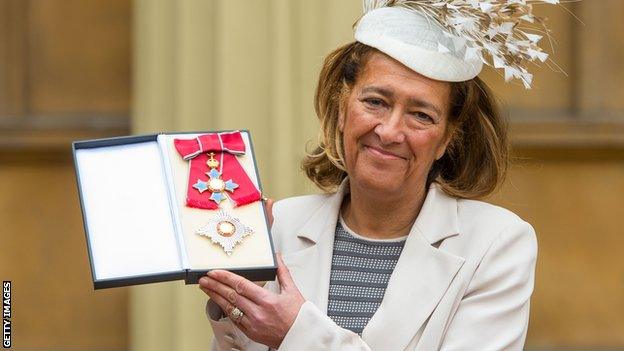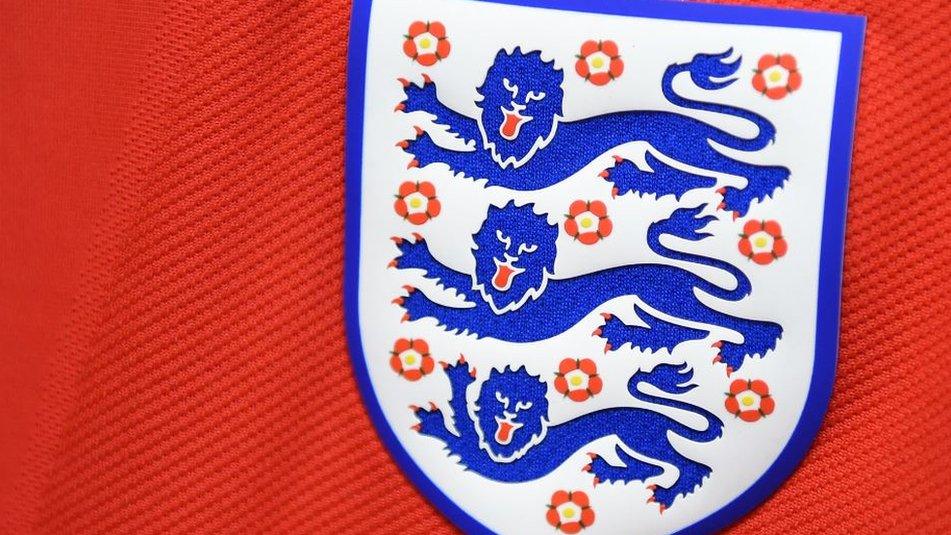Football Association: Dame Heather Rabbatts to step down from board
- Published

Rabbatts was awarded a DBE in March 2016
Dame Heather Rabbatts has announced she will step down from her role as a non-executive director and board member of the Football Association.
Rabbatts, 61, became the FA's first female non-executive director and board member when she was appointed in 2012.
In a letter to FA chairman Greg Clarke she said she remains "frustrated at the lack of progress for BAME coaches".
"We are in danger of losing, yet again, another generation of ex-players and other BAME individuals," she added.
"I truly hope that you will be able to make real the wish felt by so many that, as the FA brand states, This Game is For All."
Last month the FA agreed a set of reforms, external which included increasing the number of women on its board. The proposals are aimed at making English football more inclusive, representative and progressive.
"We have made good progress but there is still much to be done," said Rabbatts.
"It has been a privilege to serve as the first woman of colour on the Board of The FA."
In July, the FA board will reduce from 12 to 10 members, and from the start of the 2018-19 season three members of the board will be women.
Rabbatts will also step down from her position as chair of the FA's inclusion advisory board, a role she has held since its formation in 2014.
Former professional footballer and diversity campaigner Paul Elliott has been appointed chairman.
Clarke said: "Heather has been an instrumental figure for the FA since joining us over five years ago. Her knowledge and experience over those years has been invaluable.
"Her impact has been significant - most recently, her support in getting the new FA governance reforms ratified. As a result English football will be more inclusive and diverse than ever before."
Analysis
BBC sports news correspondent Richard Conway
Rabbatts was a pioneer at the FA but she departs after five years with a warning for the governing body that there is work still to do.
On a practical level, it leaves the FA with the need to recruit three female board members in time for the start of the 2018-19 season. This is due to the inclusion and diversity requirements mandated by the recently introduced Code for Sports Governance.
On a more fundamental level, Rabbatts wants the FA to lead by example when it comes to BME coaches and managers. Not enough is being done, she feels, within the England teams set-up and she fears a generation of BME coaches will be lost to the game unless changes are made. "Tangible action" rather than just supportive words are what she wants to see.
She departs the national federation having made a significant contribution to the fabric of English football - and has laid down a challenge to those who will follow her.
- Published3 April 2017

- Published9 February 2017
